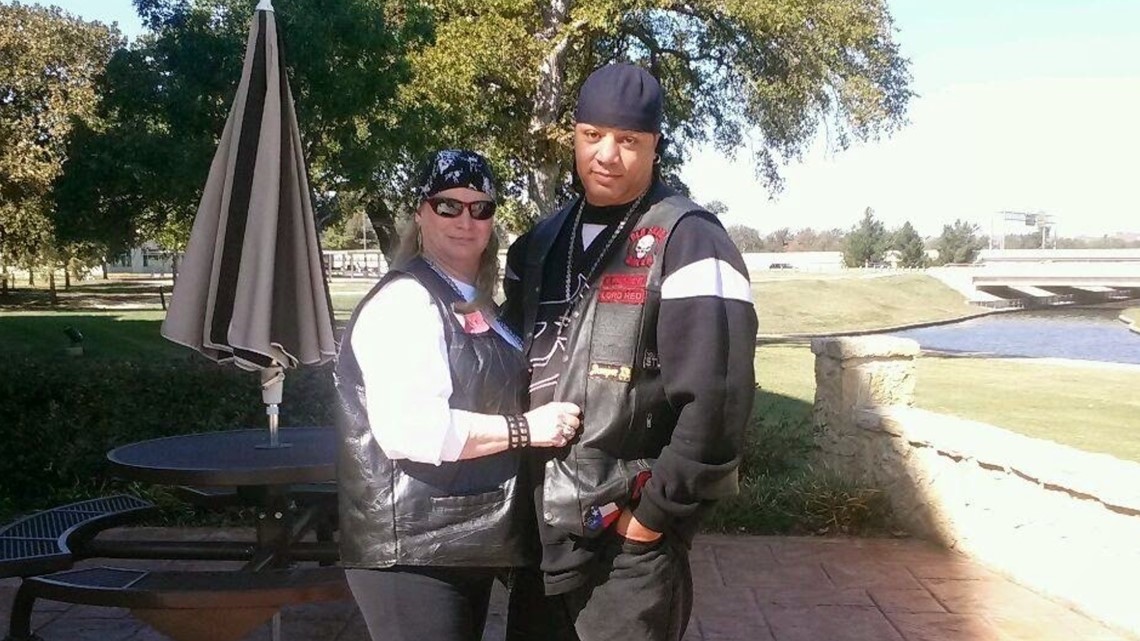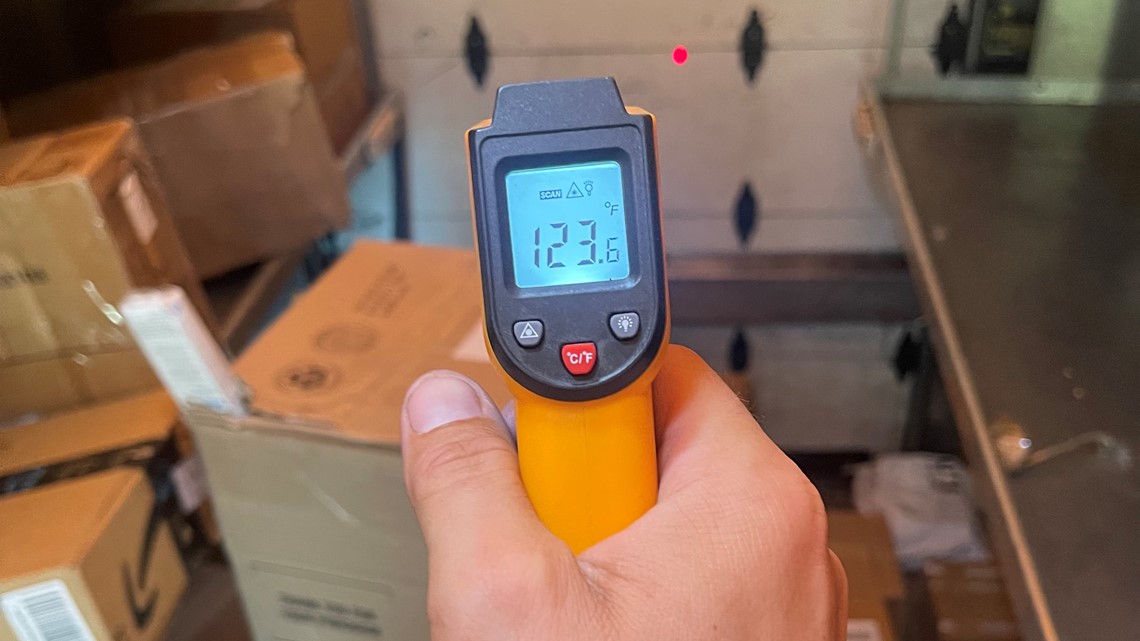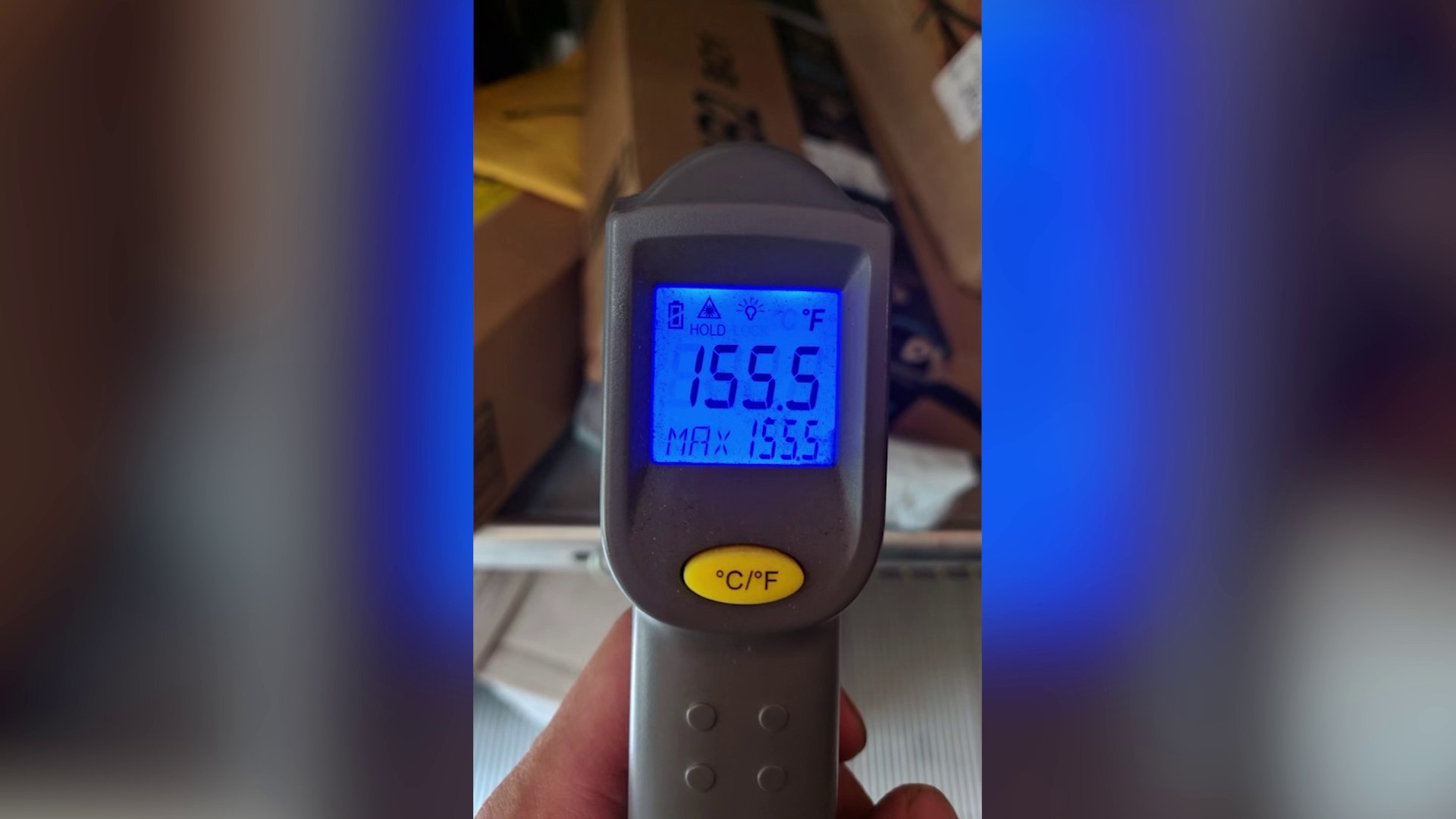FORT WORTH, Texas — The wife of a Fort Worth area UPS driver is sounding the alarm about the dangers of working in the extreme heat.
Kara Williams has had concerns for weeks about his work truck not having any air conditioning. But, Kara had hopes that age and being active were on his side.
"He is a very active young man and loves to ride his motorcycles," said Kara Williams.


That's how Williams describes her husband, and she shared photos of the much more happier times.
But now, Anthony Montgomery is in the hospital after she said he succumbed to the heat while at work.
"He is still in the hospital," said Williams. "He had a massive stroke on the 19th. He has been moved out of ICU. But he is still barely conscious."
Montgomery is a delivery driver for UPS after starting on the inside handling packages for the delivery giant. He's one of the many drivers represented by Teamsters Local Union 767 in Fort Worth.
Union president David Reeves is seriously concerned about drivers like Montgomery working in non-air-conditioned truck, calling it just too dangerous.
"We've had several employees over the last several weeks have to be hospitalized specifically to heat-related injuries," said Reeves.
Reeves shared some of the UPS truck temperatures from July: One showed 123 degrees, temperatures in another truck reached 135 degrees and another truck full of packages showed 155 degrees.


Now that August is here, Reeves doesn't see it getting any easier for drivers because of the heat.
"I believe it's going to be another difficult month," said Reeves.
UPS released the following statement to WFAA concerning delivery drivers working in the extreme heat:
“The health and safety of our employees is our highest priority. UPS drivers are trained to work outdoors and to manage the effects of hot weather. Preparation, rest, hydration and maintaining good health practices are key to working outdoors. UPS invests more than $260 million annually to implement programs focused on safety, including working in hot weather.
For example, our “Cool Solutions” program was developed with input from experts in the field of occupational health and safety that focuses on educating employees about hydration along with nutrition and proper sleep before working in hotter temperatures. We have morning meetings with drivers all year round, reminding them of forecasted temperatures and encouraging them to be aware of their own health conditions. In the summer, in addition to providing water and ice for employees, we provide regular heat illness and injury prevention training to all operations managers and drivers.
Another example is our innovative safety platform known as the Comprehensive Health and Safety Process (CHSP). The CHSP is a collaboration between local UPS’s hourly employees and management that meets regularly to discuss health and safety, involving our front-line employees in ways to protect the health and safety of their co-workers. There are more than 3,200 CHSP committees in UPS facilities across the country. We also have a dedicated team of health and safety professionals who review work practices and promote health awareness.
Our package delivery vehicles make frequent stops, which requires the engine to be turned off and the doors to be opened and closed, about 130 times a day on average. We have studied heat mitigation with our vehicles and integrated forced air systems with venting to create airflow around the driver and cargo areas. We optimize the roof of vehicles to minimize heat in the cargo area, alongside insulating the roof of the cab. We also offer fans to drivers upon request.
We also offer our employees multiple ways to share their concerns with us, and we promptly address issues when they are brought to our attention. We never want our employees to continue working to the point that they risk their health or work in an unsafe manner.”
Still, union president Reeves is traveling all over North Texas for rallies on behalf of UPS drivers.
He's sure hot weather conditions will be part of contract talks next year. He believes drivers are not only being subject to unsafe working conditions but also being forced to work overtime hours, which exposes them to the heat for an even more extended period of time.
"We want our union members to be successful on their jobs just like the company does, but we also want them to have the best working conditions so they can do the best job," said Reeves.
Reeves and his union team members hope to educate members now about what to expect when they enter negotiations next year with UPS.
But right now with her husband in the hospital, Kara Williams warns everyone about the heat.
"Don't stay out in that heat nonstop for 12 and 14 hours," said Williams.

